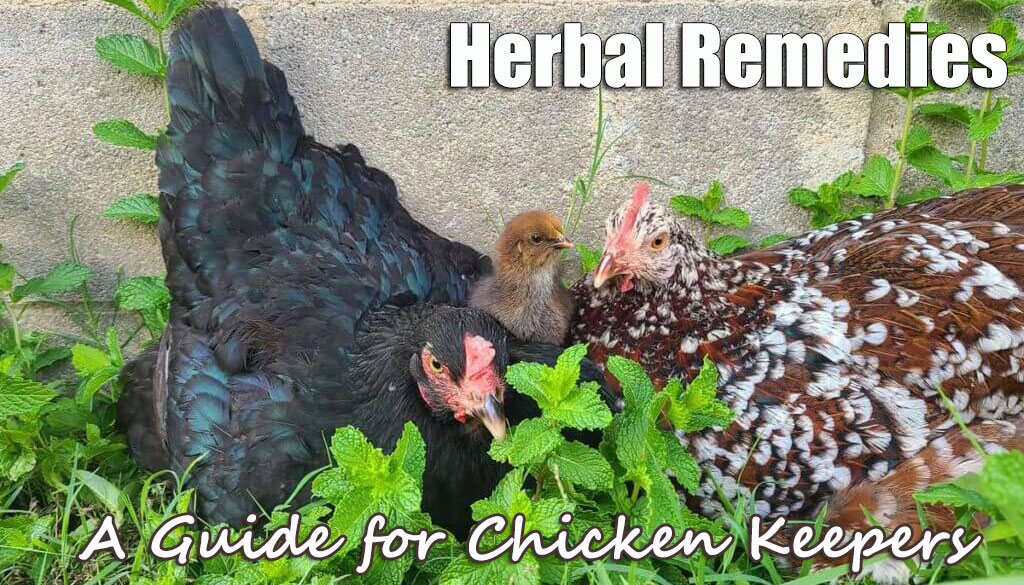
As a chicken keeper, it’s essential to be familiar with natural remedies for common poultry ailments. Herbal remedies offer a holistic approach to maintaining the health and well-being of your flock, often providing effective solutions without the use of synthetic medications. In this guide, we’ll explore various herbal remedies that can help address common issues faced by chickens, promoting their overall health and vitality.
Respiratory Issues:
Respiratory issues are common among poultry and can result from various factors such as environmental stress, poor ventilation, infectious agents, or nutritional deficiencies. Recognizing the signs of respiratory distress in chickens, such as coughing, sneezing, nasal discharge, or labored breathing, is crucial for prompt intervention. Herbal remedies can play a supportive role in managing respiratory issues in chickens, but it’s essential to consult with a veterinarian for a proper diagnosis and treatment plan. Here are some herbal remedies that can help address respiratory issues in chickens:
- Oregano Oil: Oregano oil contains compounds such as carvacrol and thymol, which have antimicrobial properties and can help combat respiratory infections. Add a few drops of oregano oil to your chickens’ drinking water or mix it with their feed to support respiratory health.
- Thyme: Thyme is another herb with antimicrobial and expectorant properties that can benefit chickens with respiratory issues. You can offer fresh thyme leaves in their diet or brew thyme tea and add it to their water.
- Garlic: Garlic is known for its immune-boosting properties and can help chickens fight off respiratory infections. Crush a clove of garlic and mix it with their feed, or offer garlic-infused water to support their respiratory system.
- Licorice Root: Licorice root has soothing properties that can help relieve respiratory irritation and promote healthy lung function. You can brew licorice root tea and offer it in their water or sprinkle dried licorice root powder over their feed.
- Echinacea: Echinacea is an immune-boosting herb that can aid chickens in combating respiratory infections. Use echinacea tincture diluted in water according to recommended dosage or offer dried echinacea flowers in their diet.
- Nettle: Nettle is rich in vitamins and minerals that support overall immune function and respiratory health. Offer fresh or dried nettle leaves to your chickens as part of their diet to boost their respiratory resilience.
- Goldenseal: Goldenseal is antimicrobial and anti-inflammatory, making it beneficial for respiratory issues in chickens. Use goldenseal tincture diluted in water or add powdered goldenseal root to their feed under veterinary guidance.
It’s important to note that while herbal remedies can offer support, they should not replace professional veterinary care. If your chickens show signs of respiratory distress or persistent respiratory issues, consult a veterinarian for a thorough evaluation and appropriate treatment. Additionally, ensure proper ventilation, clean bedding, and a stress-free environment to prevent respiratory problems in your flock.
Digestive Upset:
Digestive upset in chickens can manifest as diarrhea, indigestion, or other gastrointestinal disturbances. It can be caused by various factors such as dietary changes, bacterial infections, parasites, or stress. Identifying the signs of digestive issues, such as changes in droppings, reduced appetite, or lethargy, is crucial for addressing the problem promptly. Herbal remedies can be valuable in supporting digestive health and alleviating discomfort in chickens. Here are some herbal remedies for digestive upset in poultry:
- Ginger: Ginger is known for its anti-inflammatory and digestive-stimulating properties. It can help soothe gastrointestinal irritation and promote healthy digestion. Grate fresh ginger and mix it with their feed or offer ginger-infused water to chickens experiencing digestive upset.
- Peppermint: Peppermint has calming effects on the digestive tract and can help reduce gas, bloating, and indigestion in chickens. Offer fresh or dried peppermint leaves in their diet or brew a mild peppermint tea to add to their water for digestive support.
- Fennel Seeds: Fennel seeds contain compounds that aid digestion and can relieve digestive discomfort in chickens. Crush fennel seeds and mix them with their feed, or offer fennel seed tea to promote gastrointestinal health.
- Chamomile: Chamomile has soothing properties that can help calm digestive inflammation and alleviate gastrointestinal upset. Brew chamomile tea and offer it in their water or sprinkle dried chamomile flowers over their feed.
- Pumpkin: While not an herb, pumpkin is a natural remedy for digestive issues in chickens. The high fiber content in pumpkin can regulate bowel movements and alleviate diarrhea or constipation. Offer cooked or pureed pumpkin to chickens as a dietary supplement during digestive distress.
- Dandelion: Dandelion leaves are rich in vitamins and minerals that support digestive health. Offer fresh dandelion leaves in their diet or brew dandelion tea to aid digestion and promote overall well-being.
- Aloe Vera: Aloe vera has anti-inflammatory and soothing properties that can benefit chickens with digestive upset. Use fresh aloe vera gel (without the outer skin) diluted in water and offer it as a drink or add it to their feed under veterinary guidance.
It’s important to monitor your chickens’ condition closely and provide supportive care such as ensuring access to clean water, maintaining a balanced diet, and minimizing stress factors. If digestive issues persist or worsen, consult a veterinarian for a comprehensive evaluation and appropriate treatment plan. Herbal remedies can complement veterinary care but should not replace professional medical advice when dealing with significant digestive problems in poultry.
Parasites:
Parasitic infections are a common concern for chicken keepers and can include external parasites like mites and lice, as well as internal parasites such as worms. These parasites can cause various health issues and affect the overall well-being of your flock. While proper hygiene and regular cleaning of the coop are essential in parasite prevention, herbal remedies can also play a role in managing and controlling parasites in chickens. Here are some herbal remedies for dealing with parasites in poultry:
- Diatomaceous Earth (DE): Food-grade diatomaceous earth is a natural substance that can be effective against external parasites like mites, lice, and fleas. DE works by dehydrating and disrupting the exoskeletons of parasites, leading to their demise. Dusting the coop, nesting boxes, and dust-bathing areas with DE can help control external parasites without harming chickens.
- Neem Oil: Neem oil is derived from the neem tree and has insecticidal properties that can repel and kill external parasites. Dilute neem oil in water according to the manufacturer’s instructions and spray it on your chickens’ feathers, coop walls, and perches to deter mites, lice, and other pests.
- Garlic: Garlic contains compounds such as allicin that have natural insect-repelling properties. Incorporating garlic into your chickens’ diet can help deter external parasites. Crush a few cloves of garlic and mix them with their feed or offer garlic-infused water as a preventative measure against parasites.
- Wormwood: Wormwood is effective against internal parasites like worms (nematodes). It contains compounds such as absinthin and anabsinthin that can help eliminate intestinal parasites. Offer small amounts of dried wormwood leaves mixed with their feed or use a commercial wormwood tincture diluted in water according to recommended dosage for deworming purposes.
- Marigold (Calendula): Marigold flowers contain compounds that are believed to repel insects and may help control external parasites like mites and lice. Hang dried marigold flowers in the coop or nesting boxes, or sprinkle calendula petals over bedding to discourage parasites.
- Apple Cider Vinegar (ACV): While not an herb, apple cider vinegar has been used by some chicken keepers as a natural parasite deterrent. Adding a small amount of raw, unfiltered ACV to their drinking water may help create an environment less favorable to parasites, although scientific evidence supporting its efficacy is limited.
- Pumpkin Seeds: Pumpkin seeds contain cucurbitacin, a compound that may have anthelmintic (anti-parasitic) properties against certain types of internal parasites. Offer crushed or ground pumpkin seeds in their feed as a natural deworming agent.
It’s important to note that while herbal remedies can be beneficial, they may not be sufficient for severe parasite infestations. Regular monitoring of your flock, practicing good hygiene, and seeking veterinary advice for diagnosis and treatment of parasitic infections are crucial for maintaining the health of your chickens. Additionally, rotating herbal remedies and using them in conjunction with other parasite control methods can help prevent resistance buildup in parasites.
Stress and Anxiety:
Stress and anxiety can impact the well-being and productivity of chickens, leading to behavioral changes, decreased egg production, and compromised immune function. Recognizing the signs of stress and anxiety in chickens, such as feather picking, aggression, decreased appetite, or increased vocalization, is crucial for implementing strategies to reduce stressors and promote a calm environment. Herbal remedies can be valuable in helping chickens cope with stress and anxiety naturally. Here are some herbal remedies for managing stress and anxiety in poultry:
- Chamomile: Chamomile is well-known for its calming and soothing properties, making it beneficial for chickens experiencing stress or anxiety. Brew chamomile tea and offer it in their water or sprinkle dried chamomile flowers in their coop to create a relaxing environment.
- Lavender: Lavender has a calming aroma that can help reduce stress and anxiety in chickens. Hang dried lavender bundles in the coop or nesting boxes, or use lavender essential oil diluted in a carrier oil for gentle aromatherapy to promote relaxation.
- Valerian Root: Valerian root is a natural sedative that can help calm nervous chickens and promote restful sleep. Offer small amounts of dried valerian root mixed with their feed or brew valerian tea to help alleviate stress-related symptoms.
- Lemon Balm: Lemon balm has mild sedative effects and can help reduce stress and anxiety in chickens. Offer fresh or dried lemon balm leaves in their diet or brew lemon balm tea to promote relaxation and mental well-being.
- Passionflower: Passionflower is known for its calming properties and can help chickens cope with stress and anxiety. Use passionflower tincture diluted in water according to recommended dosage or offer dried passionflower leaves in their feed.
- Oat Straw: Oat straw is rich in nutrients that support the nervous system and can help calm anxious chickens. Offer dried oat straw as bedding material or sprinkle it in their coop for a soothing effect.
- Catnip: Catnip contains compounds that can have a calming effect on chickens. Offer fresh or dried catnip leaves in their diet or use catnip as a natural herb for foraging and enrichment.
It’s important to create a low-stress environment for chickens by providing adequate space, enrichment activities, and minimizing disturbances such as loud noises or sudden movements. Additionally, addressing the underlying causes of stress, such as overcrowding, predator threats, or social hierarchy issues, is essential for long-term stress management. While herbal remedies can help alleviate stress and anxiety symptoms, consulting with a veterinarian for a comprehensive evaluation and implementing holistic management practices are key to promoting the overall well-being of your flock.
Immune Boosters:
Boosting the immune system of chickens is crucial for maintaining their health and resilience against various diseases and infections. A strong immune system helps chickens fight off pathogens effectively, reducing the risk of illnesses and promoting overall well-being. While proper nutrition, hygiene, and management practices are fundamental for immune health, herbal remedies can also play a supportive role in boosting immunity in poultry. Here are some herbal immune boosters for chickens:
- Echinacea: Echinacea is one of the most well-known immune-boosting herbs. It stimulates the production of white blood cells and enhances the body’s defense mechanisms against infections. Offer dried echinacea flowers or use echinacea tincture diluted in water according to recommended dosage for immune support.
- Garlic: Garlic has antimicrobial and immune-stimulating properties due to compounds like allicin. Incorporating garlic into chickens’ diets can help boost their immune response. Crush fresh garlic cloves and mix them with their feed or offer garlic-infused water for immune support.
- Astragalus: Astragalus root is a potent immune modulator that can enhance chickens’ resistance to infections. Use astragalus tincture diluted in water or offer dried astragalus root as part of their diet for immune-boosting benefits.
- Turmeric: Turmeric contains curcumin, a compound with anti-inflammatory and immune-enhancing properties. Offer turmeric powder mixed with their feed or use turmeric paste (turmeric mixed with water or oil) for immune support and overall health.
- Ginger: Ginger has antimicrobial and anti-inflammatory properties that can support immune function. Grate fresh ginger and add it to their feed or offer ginger-infused water as a natural immune booster.
- Rose Hips: Rose hips are rich in vitamin C, a potent antioxidant that supports immune health. Offer dried rose hips as part of their diet or brew rose hip tea to provide vitamin C and other immune-supportive nutrients.
- Oregano: Oregano contains compounds like carvacrol and thymol, which have antimicrobial properties and can support immune function. Add dried oregano to their feed or offer oregano-infused water for immune support.
- Spirulina: Spirulina is a nutrient-rich algae that contains vitamins, minerals, and antioxidants that can boost immunity. Offer spirulina powder mixed with their feed or provide spirulina tablets as a supplement for immune support.
It’s important to note that while herbal immune boosters can be beneficial, they should be used as part of a comprehensive approach to poultry health. Providing a balanced diet, clean water, appropriate housing, and reducing stressors are essential components of immune health. Additionally, consulting with a veterinarian for guidance on herbal remedies and overall flock management is recommended to ensure the well-being and productivity of your chickens.
Conclusion:
Herbal remedies are valuable additions to a chicken keeper’s toolkit for maintaining poultry health naturally. However, it’s crucial to research each herb’s proper use, dosage, and potential interactions to ensure the safety and well-being of your flock. Incorporating herbal remedies alongside good husbandry practices can help keep your chickens healthy, happy, and thriving.
 Catalana Chicken Breed – Everything You Need to Know
Catalana Chicken Breed – Everything You Need to Know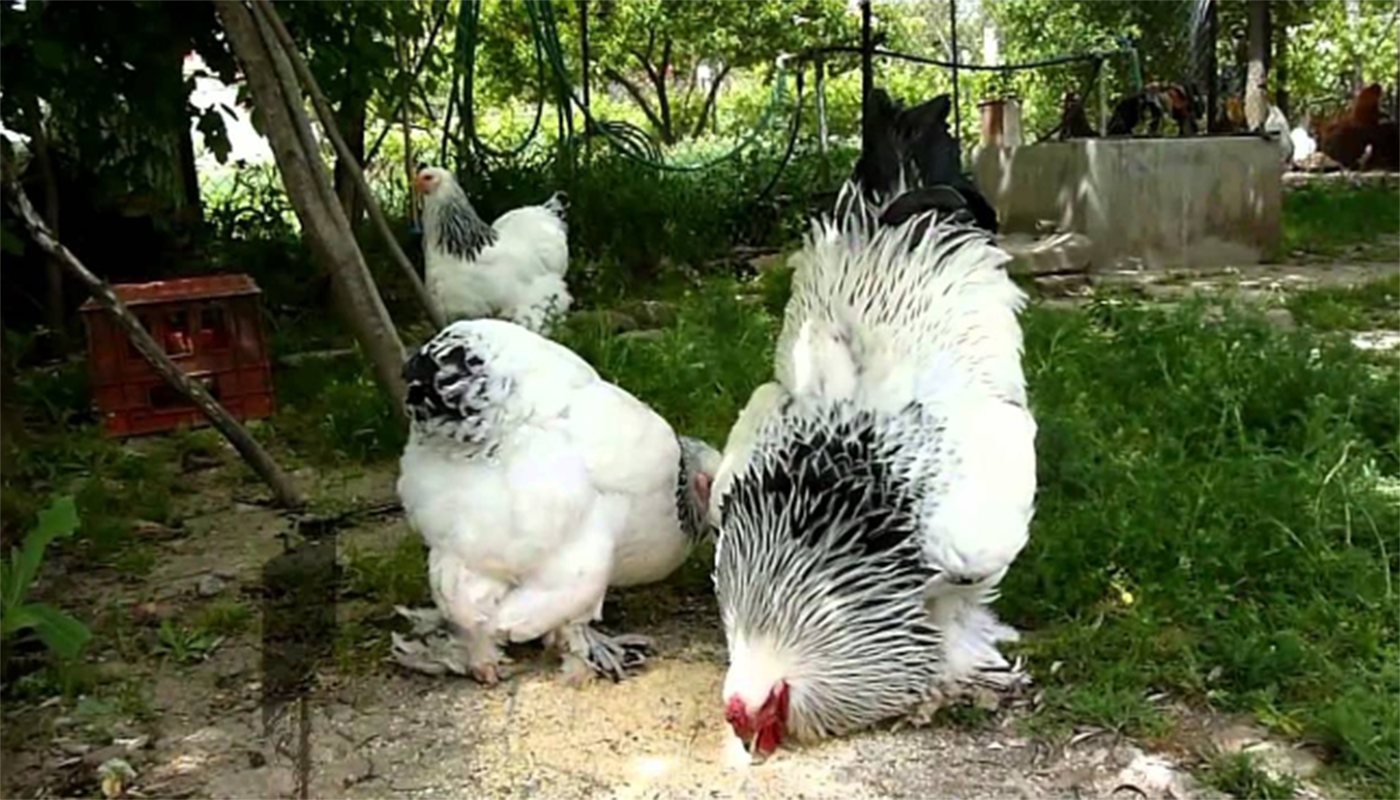 Brahma Chicken Breed – Everything You Need to Know
Brahma Chicken Breed – Everything You Need to Know Polish Chicken Breed – Everything You Need to Know
Polish Chicken Breed – Everything You Need to Know Barnevelder Chicken Breed – Everything You Need to Know
Barnevelder Chicken Breed – Everything You Need to Know 10 Chicken Breeds that have Glossy Black Plumage
10 Chicken Breeds that have Glossy Black Plumage Buckeye Chicken Breed – Everything You Need to Know
Buckeye Chicken Breed – Everything You Need to Know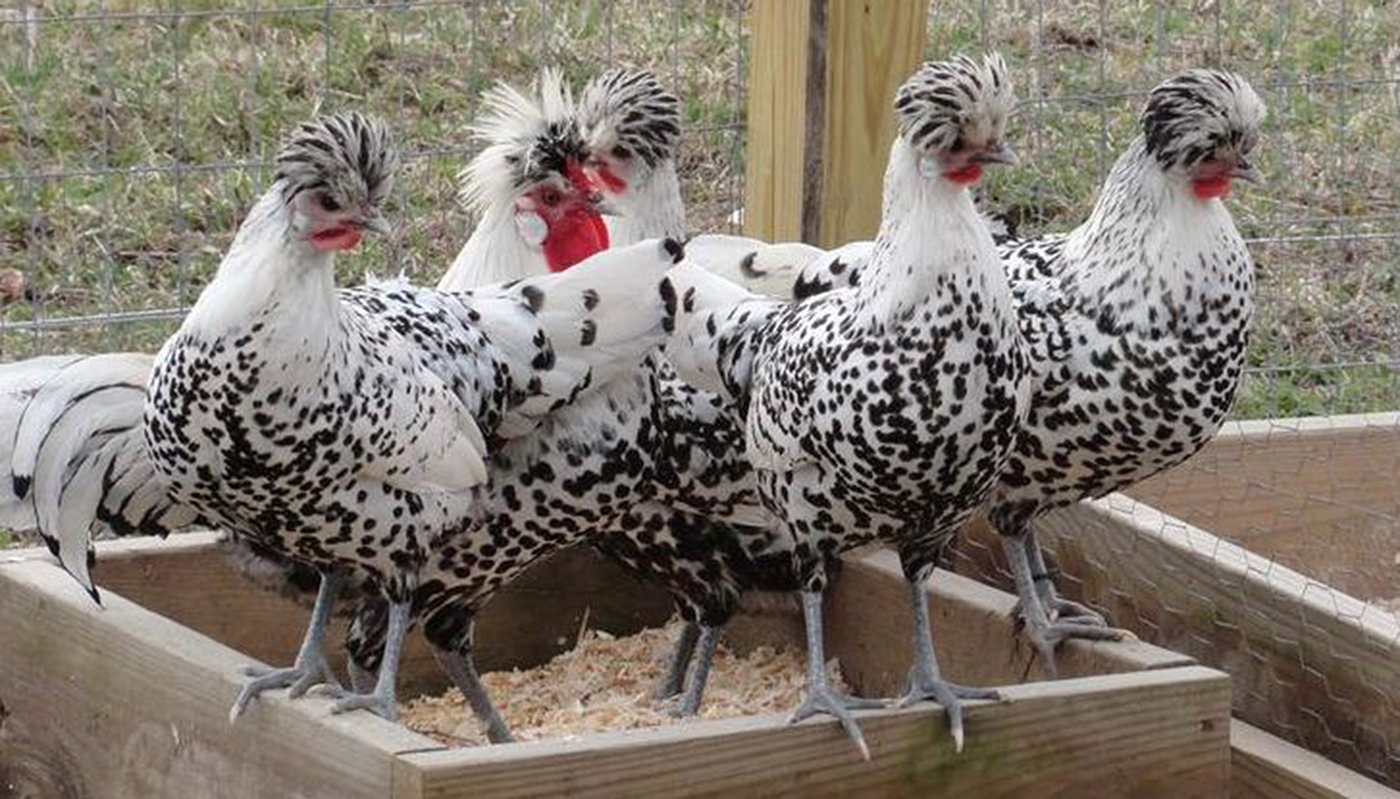 Appenzeller Chicken Breed – Everything You Need to Know
Appenzeller Chicken Breed – Everything You Need to Know 10 Chicken Breeds for the Hot Climates
10 Chicken Breeds for the Hot Climates CONDITIONS THAT AFFECT A CHICKENS VENT
CONDITIONS THAT AFFECT A CHICKENS VENT Sussex Chicken Breed – Everything You Need to Know
Sussex Chicken Breed – Everything You Need to Know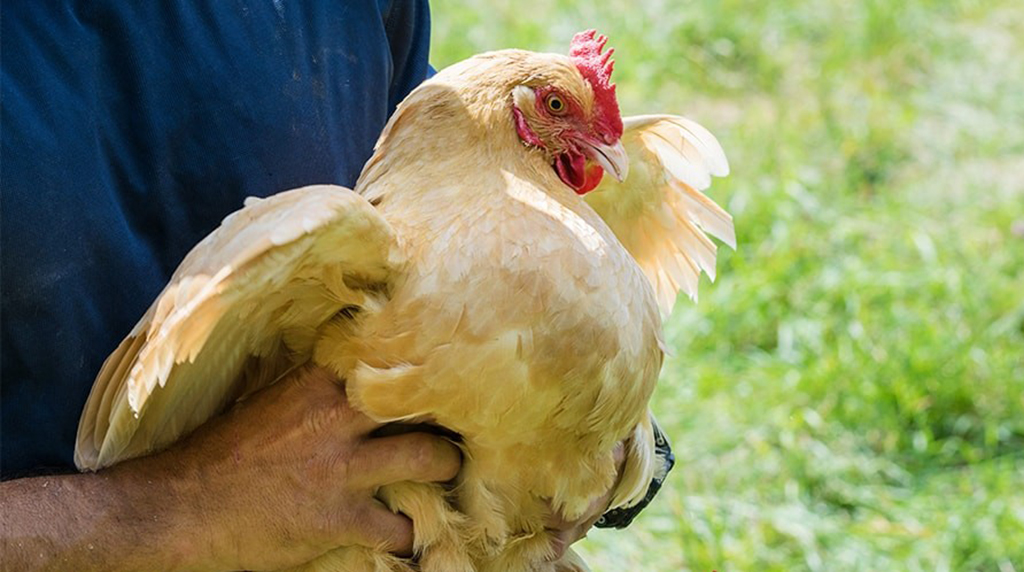 Why Deworming Chickens is Important?
Why Deworming Chickens is Important?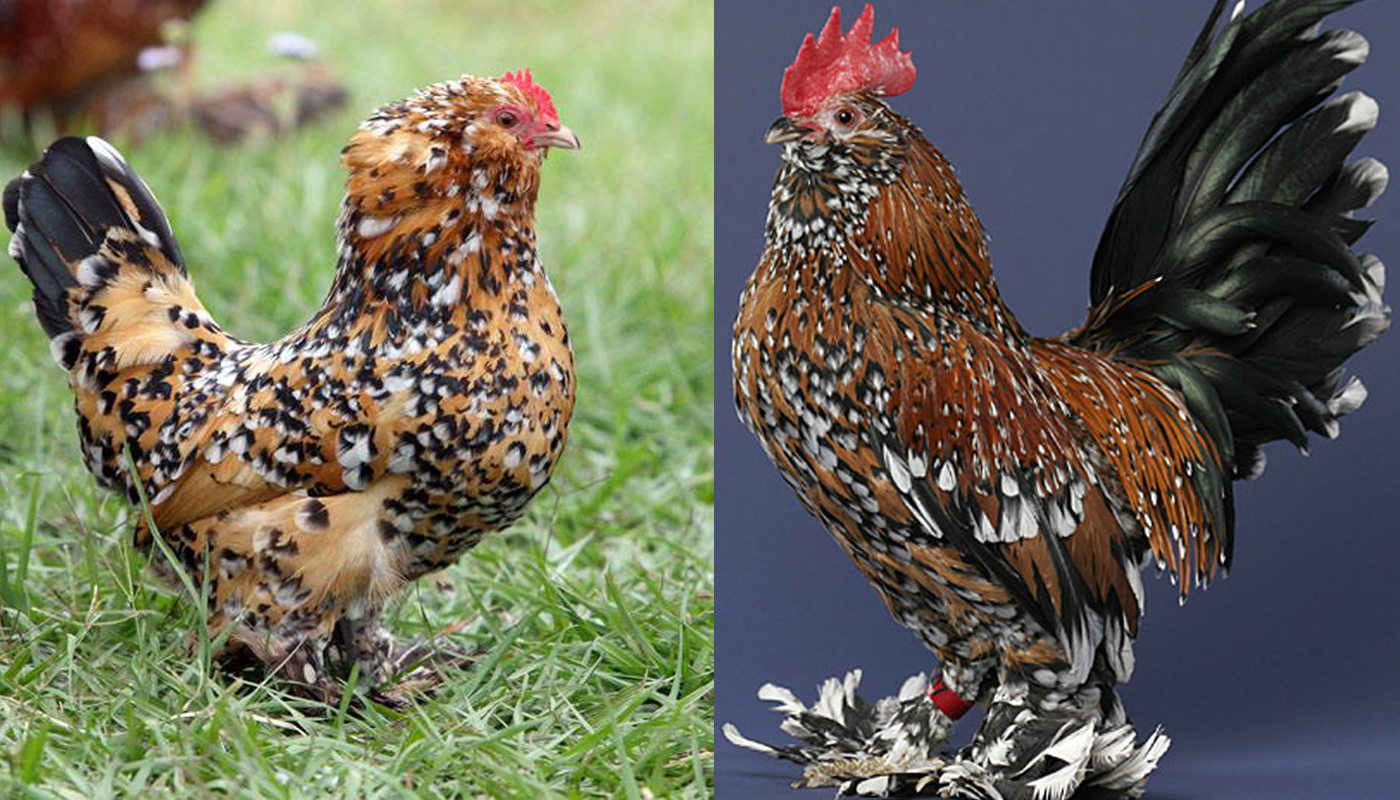 Belgian Bearded D’Uccle Chicken Breed – Everything You Need to Know
Belgian Bearded D’Uccle Chicken Breed – Everything You Need to Know